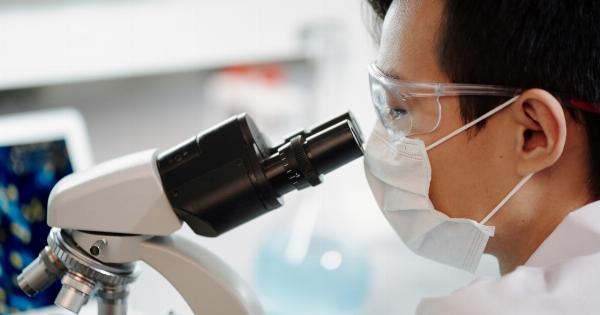The human body is teeming with microbes, particularly in the gut, where trillions of bacteria reside.
This vast community of microorganisms, known as the gut microbiome, plays a vital role in various physiological processes, including digestion, immune system regulation, and metabolism.
The Link between Colon Bacteria and Cancer
In recent years, scientists have started to uncover a fascinating connection between the gut microbiome and cancer development, particularly in the colon.
Colon cancer, also known as colorectal cancer, is a type of cancer that originates in the colon or rectum. It is the third most common cancer worldwide and a leading cause of cancer-related deaths.
Emerging research suggests that alterations in the composition and activity of colon bacteria can significantly impact an individual’s risk of developing colon cancer.
Certain bacteria strains have been identified as potentially protective against cancer, while others have been linked to an increased cancer risk.
The Role of Colon Bacteria in Cancer Prevention
Studies have demonstrated that commensal bacteria, those that coexist harmlessly with humans, can produce metabolites that have anti-cancer properties.
For instance, certain bacteria in the gut are capable of breaking down dietary fiber to produce short-chain fatty acids (SCFAs), such as butyrate.
Butyrate, in particular, has been found to exhibit several anti-cancer effects. It can help inhibit the growth of cancer cells, regulate cell differentiation, and promote apoptosis (programmed cell death) in cancer cells.
Additionally, butyrate can enhance the overall health of the colon’s epithelial cells, creating an environment less favorable for cancer development.
Other studies have revealed that colon bacteria play a crucial role in activating the immune system’s response against cancer cells.
Certain bacteria can stimulate the production of specific immune cells that target and destroy cancer cells, thereby acting as an important defense mechanism against colon cancer.
Dysbiosis: An Imbalance with Consequences
Dysbiosis refers to a disruption of the normal balance of bacteria in the gut microbiome. When dysbiosis occurs, harmful bacteria can become overly abundant, while beneficial bacteria may dwindle.
This imbalance has been linked to various health conditions, including colon cancer.
Studies have shown that individuals with colon cancer often exhibit distinct gut microbiome profiles compared to healthy individuals.
They tend to have reduced microbial diversity, an increased presence of pro-inflammatory bacteria, and a reduced abundance of beneficial bacteria.
Moreover, dysbiosis can lead to intestinal inflammation, a known risk factor for the development of colon cancer. Chronic inflammation damages the intestinal lining and can promote the growth of abnormal cells, eventually leading to cancerous tumors.
Potential Therapeutic Strategies
The emerging understanding of the connection between colon bacteria and cancer opens up new possibilities for therapeutic interventions.
Manipulating the gut microbiome to restore a healthy bacterial balance may offer a promising approach for colon cancer prevention and treatment.
Several strategies are being explored in this regard. One approach involves using probiotics, which are live bacteria that confer health benefits when consumed in adequate amounts.
Probiotics can help restore a healthy gut microbiome composition and enhance immune function, potentially reducing the risk of colon cancer.
Another strategy focuses on utilizing prebiotics, which are dietary fibers that selectively promote the growth of beneficial bacteria in the gut.
By consuming prebiotic-rich foods or supplements, individuals can support the growth of protective bacteria strains that may help prevent colon cancer.
Furthermore, fecal microbiota transplantation (FMT) has shown promise as a therapeutic option. FMT involves transplanting fecal matter from a healthy donor into the gut of an individual with dysbiosis or a specific health condition.
This procedure helps restore a healthy bacterial balance and has demonstrated efficacy in treating certain gastrointestinal conditions, with potential applications in colon cancer prevention and management.
Ongoing Research and Future Perspectives
While significant progress has been made in understanding the link between colon bacteria and cancer, there is still much to explore.
Researchers are actively investigating the specific mechanisms by which certain bacteria influence colon cancer development.
Molecular studies are uncovering crucial insights into the interactions between colon bacteria, the gut environment, and the host’s genetic factors.
Understanding these complex relationships will be pivotal in developing personalized strategies for colon cancer prevention and treatment.
In conclusion, the connection between colon bacteria and cancer is a rapidly advancing field of research. It highlights the crucial role of the gut microbiome in maintaining overall health and preventing the development of colon cancer.
By further unraveling the intricate relationship between colon bacteria and cancer, scientists hold the potential to revolutionize colon cancer prevention and treatment strategies in the future.































